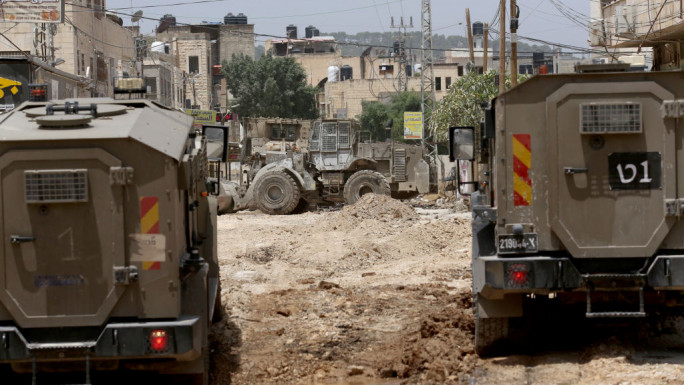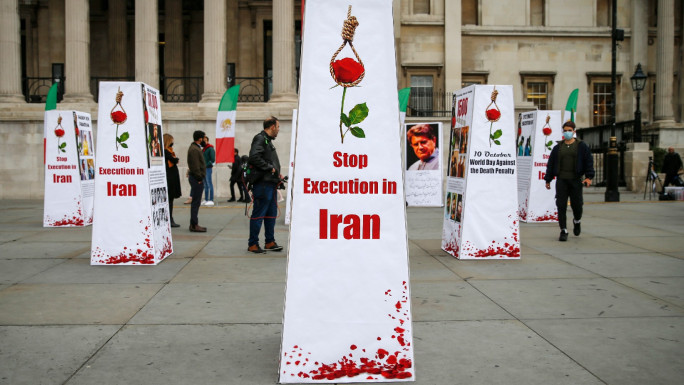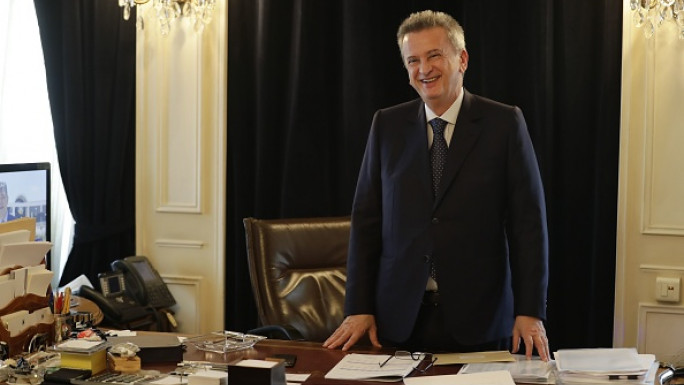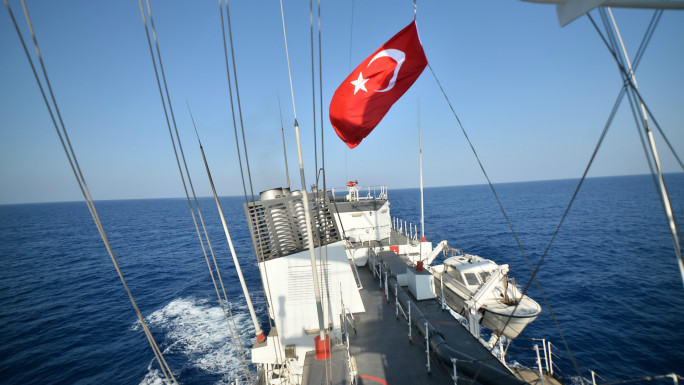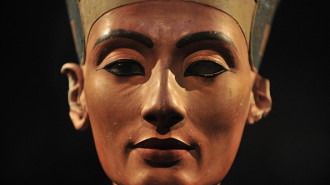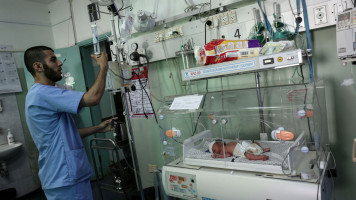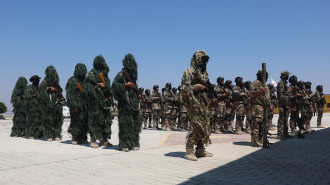Widespread condemnation around the world following killing of Hamas leader Ismail Haniyeh
Global condemnation has poured in following the assassination of Hamas leader Ismail Haniyeh in the Iranian capital Tehran in the very early hours of Wednesday.
Haniyeh, who led the Palestinian group’s political bureau, was killed alongside his bodyguard in what Israeli media said was a missile strike, but this wasn’t confirmed by the Iranian Revolutionary Guard Corps which said that an investigation had been opened into the "incident."
Iranian media said the strike that killed Haniyeh took place at around 2:00 am local time (2230 GMT), targeting "the special residences for war veterans in north Tehran" where he was staying.
Haniyeh arrived in Tehran on Tuesday to attend the inauguration of Iran's new President Masoud Pezeshkian in parliament, and the two met on that day. The slain Hamas leader also visited Iran's supreme leader Ayatollah Ali Khamenei.
Haniyeh, who resided in Qatar, had long been a target for Israel, with Tel Aviv having killed three of his sons and four of his grandchildren in Gaza in April. Governments across the region and the world expressed anger at his killing.
Iran
Although Israel has not yet claimed responsibility for the attack, Pezeshkian vowed to make Israel "regret" the "cowardly" killing of Haniyeh in Tehran.
"The Islamic Republic of Iran will defend its territorial integrity, honour, pride and dignity, and make the terrorist invaders regret their cowardly action," said Pezeshkian in a post on X where he mourned Haniyeh as "a brave leader."
Hamas
The Izz al-Din al-Qassam Brigades – Hamas' military wing – said the assassination of Haniyeh in the heart of Tehran was "a significant and dangerous event that takes the battle to new dimensions."
It warned the killing of the Hamas political leader will have "enormous consequences."
Palestinian Authority
Palestinian President Mahmoud Abbas said the killing of Haniyeh was a "cowardly act" and urged Palestinians to remain united against Israel.
"President Mahmoud Abbas of the State of Palestine strongly condemned the assassination of Hamas leader Ismail Haniyeh, deeming it a cowardly act and a serious escalation," Abbas's office said in a statement.
"He urged our people and their forces to unite, remain patient, and stand firm against the Israeli occupation."
Qatar
Qatar condemned the killing of Haniyeh in Tehran, describing it as a "heinous crime", the Gulf state's foreign ministry said.
Qatar, which hosted Hamas' political leadership that included Haniyeh since 2012, said the killing was a "dangerous escalation" and "a flagrant violation of international and humanitarian law".
The foreign ministry said, "this assassination and the reckless Israeli behaviour of continuously targeting civilians in Gaza will lead to the region slipping into chaos and undermine the chances of peace".
"The ministry reiterates the State of Qatar's firm position rejecting violence, terrorism and criminal acts, including political assassinations, regardless of the motives and reasons," it added.
Lebanon and Hezbollah
Lebanese caretaker Prime Minister Najib Mikati "strongly" condemned in a Wednesday cabinet session the assassination of Haniyeh, noting that this posed "a serious danger of expanding the circle of global concern and danger in the region".
Hezbollah – the Iran-backed Lebanese militant group and ally of Hamas – also issued its condolences, saying Haniyeh’s "martyrdom will increase the determination and stubbornness of the resistance fighters in all areas of resistance to continue the path of jihad and will make their resolve stronger in confronting the Zionist enemy".
Haniyeh’s killing came hours after an Israeli drone strike on a southern suburb of Beirut on Tuesday targeted a very senior Hezbollah commander, whose fate remains unknown.
Hezbollah has been engaged in fierce cross-border fighting with Israel in parallel with the war on Gaza, amid fears that this will escalate into all-out war.
Syria
Syria's foreign ministry condemned the killing of Haniyeh, blaming Israel and warning that the latest escalation could "set the entire region ablaze".
"Syria condemns this blatant Zionist aggression," the ministry said, describing Haniyeh's killing as a "despicable act" and adding it "considers that the continued disregard of international laws by the Israeli entity... may set the entire region ablaze".
Haniyeh and other Hamas leaders were based in Damascus before falling out with the regime after its brutal crackdown on pro-democracy protests and moving to Qatar.
Hamas and Assad’s regime restored ties in 2022.
Yemen’s Houthis
The Houthi rebel group in Yemen called Haniyeh’s assassination a "heinous terrorist crime."
Mohammad Ali al-Houthi, a member of the Iran-backed movement’s political bureau, mourned the slain Hamas chief on his account on X and said his targeting was a "flagrant violation of laws and ideal values."
The Houthis have also been engaged in warfare with Israel in parallel with the war on Gaza, striking as far as Tel Aviv earlier this month. This prompted Israel to bomb Yemen’s Hodeida port.
Egypt
Egypt said that the recent developments indicated a lack of political will from Israel for de-escalation, after the killing of Haniyeh in Tehran.
A statement from the Egyptian foreign ministry said this escalation, along with making no progress in Gaza ceasefire talks, was complicating the situation.
The ministry warned of the repercussions of assassinations and violating countries' sovereignty.
Jordan
Jordan condemned in the "strongest" terms the assassination of Haniyeh, saying it was a violation of international and humanitarian law and a crime that will escalate the situation and create more tension and chaos in the region.
Foreign affairs ministry spokesman Sufyan al-Qudah affirmed Amman’s "firm position" in rejecting violations of state sovereignty, condemning political assassinations, and violence and terrorism "whatever their motives."
Al-Qudah stressed the need for the international community to assume its responsibilities and take immediate measures to impose an end to the Israeli war on Gaza and Israel’s violations of international law and UN resolutions, and to protect the region’s security and stability from the disastrous consequences of the continued Israeli offensive on Gaza.
The Muslim Brotherhood group in Jordan also condemned Haniyeh’s assassination, saying in a statement: "This heinous terrorist crime is a Zionist attempt to achieve an illusionary victory, after military failure that has lasted for ten months in the Gaza Strip."
The group stressed that "the blood of Ismail Haniyeh and his companion will only be a curse to the [Israeli] occupier and its aides and a light on the path to the coming liberation." The movement said that it "will maintain its pledge, loyalty, and support for the Palestinian people and their valiant resistance."
Turkey
Turkish President Recep Tayyip Erdogan on Wednesday condemned the "perfidious assassination" in Tehran of his close ally and "brother" Ismail Haniyeh.
"May God have mercy on my brother Ismail Haniyeh, fallen in martyrdom after this odious attack," Erdogan wrote on the X social media platform, denouncing "Zionist barbarity".
"This shameful act aims to sabotage the Palestinian cause, the glorious Gazan resistance and our Palestinian brothers' just fight, and to intimidate Palestinians," Erdogan added.
Turkey's foreign ministry had earlier denounced the attack as "a shameful assassination".
"Once again the (Benjamin) Netanyahu government has shown that it has no intention of achieving peace," the ministry said in a statement.
"If the international community does not take measures to stop Israel, our region will face much large conflicts."
Haniyeh had previously visited Turkey several times, meeting with Erdogan in Istanbul last April.
China
China said it condemned the "assassination" of Haniyeh in a strike in Tehran, warning it could lead to further instability in the region.
"We are highly concerned about the incident and firmly oppose and condemn the assassination," foreign ministry spokesman Lin Jian said.
"We are deeply concerned that this incident may lead to further instability in the regional situation," he added.
"China has always advocated resolving regional disputes through negotiation and dialogue," he added.
"Gaza should achieve a comprehensive and permanent ceasefire as soon as possible to avoid further escalation of conflict and confrontation," Lin said.
This month, China – which has long backed Palestinian statehood – hosted rival Palestinian factions Hamas and Fatah in Beijing, where they signed an agreement to form a "national unity government" in post-war Gaza.
Russia
Russia "strongly condemned" the killing of Haniyeh, warning it could trigger a fresh round of escalation in the Middle East.
"We believe that such actions are directed against attempts to restore peace in the region and could significantly destabilise an already tense situation," Kremlin spokesman Dmitry Peskov told reporters.
Deputy Foreign Minister Mikhail Bogdanov had earlier called the attack a "completely unacceptable political assassination," in comments to the state-run RIA Novosti news agency.
"There is no doubt that the assassination of Ismail Haniyeh will have an extremely negative impact on mediated contacts between Hamas and Israel," Russia's foreign ministry said in a statement.
"The organisers of this political assassination were aware of the dangerous consequences for the entire region," it added.
The foreign ministry called on all sides to exercise restraint and avoid further steps "that could lead to a dramatic deterioration in the region's security and provoke a large-scale armed confrontation".
(Agencies contributed to this report)


